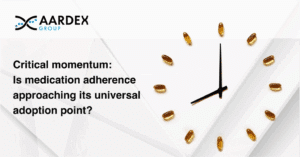Proving the efficacy of investigational products is a complex process but with the right Medication Adherence Technology, sponsors can generate the evidence that they need to get drugs from labs to life, faster.
Unmet Medical Need
Non-steroidal anti-inflammatory drugs (NSAIDs) are medicines that are widely used to combat pain, reduce inflammation, and reduce high temperatures. Although NSAIDs are commonly used, they’re not suitable for everyone and, like most medicines, can sometimes lead to adverse side effects.
To tackle this unmet medical need, Iroko Pharmaceuticals developed SoluMatrix, a Meloxicam medication that contains a different pharmacokinetic profile to other Meloxicam products. The 10mg capsules, which were more rapidly absorbed than other common formulations such as Mobic, had the potential to cut the standard of care twice daily dosing regime in half, which could result in fewer adverse events.
The Challenge
Iroko Pharmaceuticals had a challenge on their hands – how could they generate the evidence required to prove that SoluMatrix was, in fact, just as effective as other Meloxicam medications, but at half of the usual dose?
They knew that to do so, they needed a real-time medication adherence technology that was intelligent enough to capture not only if a dose was taken, but when the doses were taken, and the frequency between doses, without adding any burden to the patients participating in the Phase III study.
The Solution
In this case study, we outline how Iroko used AARDEX Group’s Track Caps (MEMS® Caps) in combination with AARDEX Group’s real-time Medication Adherence Software, MEMS AS®, to generate the evidence that led to Iroko obtaining approval from the FDA for SoluMatrix.
Schedule a Complimentary Consultation
Ready to find out how AARDEX Group can help you expedite getting your product from lab to life faster? Schedule a complimentary consultation with our Scientific Lead, Bernard Vrijens.
About Bernard Vrijens
Bernard holds a Ph.D. from the Department of Applied Mathematics and Informatics at Ghent University, Belgium. As Scientific Lead at AARDEX Group, Bernard oversees the research and development of sophisticated analytical methods for monitoring participant medication-taking behaviors.
Along with providing guidance on adherence to Pharmaceutical, Biotechnology, and Academic organizations, Bernard is a founding member of the International Society for Patient Adherence (ESPACOMP) and is an active member of several EU and US-funded consortiums that focus on adherence. Having co-authored several book chapters, and over 100 peer-reviewed scientific papers, Bernard is considered an expert in the field of medication adherence.



